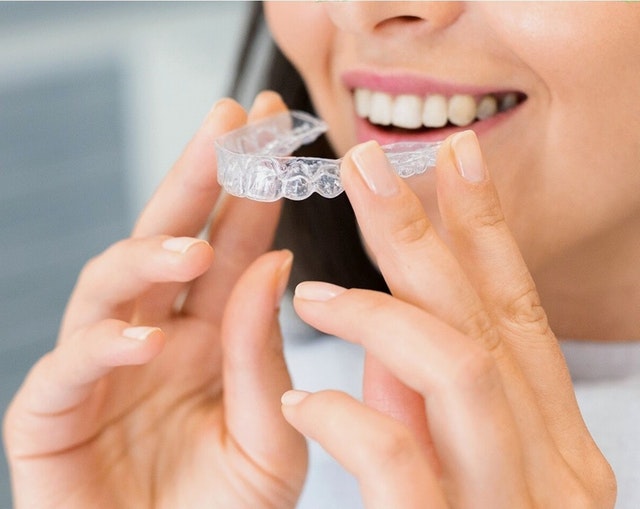The Binge-Restrict Cycle: Why Diets Make It Worse
Have you ever found yourself caught in a relentless cycle of dieting, only to end up binging on your favorite treats? You’re not alone. Many people experience the binge-restrict pattern, where temporary calorie cuts lead to overwhelming cravings and guilt. It’s a frustrating loop that often leaves us feeling defeated. Sometimes, you’ll even need some binge eating coaching sessions.
So why does this happen? The answer lies in how our bodies and minds respond to restrictive diets. Let’s take a closer look at the underlying factors that fuel this cycle and discover why embracing balance might be the key to breaking free from it for good.
Physiological Starvation Mode
 Physiological starvation mode is a fascinating response our bodies have to restrictive eating. When we cut calories too drastically, the body senses this as a threat. It believes food scarcity is imminent and shifts into survival mode. During this phase, metabolism slows down significantly. The body conserves energy by burning fewer calories. This reaction can make weight loss feel nearly impossible, even if you’re eating less than before. In addition to slowing down metabolism, hormonal changes occur.
Physiological starvation mode is a fascinating response our bodies have to restrictive eating. When we cut calories too drastically, the body senses this as a threat. It believes food scarcity is imminent and shifts into survival mode. During this phase, metabolism slows down significantly. The body conserves energy by burning fewer calories. This reaction can make weight loss feel nearly impossible, even if you’re eating less than before. In addition to slowing down metabolism, hormonal changes occur.
Levels of hormones like leptin drop while ghrelin increases. This imbalance heightens hunger signals and cravings for high-calorie foods. Rather than facilitating weight loss, these adaptations create an environment ripe for overeating once normal eating resumes. The cycle continues as cravings intensify—making those restrictive diets not just ineffective but potentially harmful in the long run.
Mental Deprivation
Mental deprivation occurs when dieting creates a restrictive mindset. It often leads to an unhealthy relationship with food. When you constantly deny yourself certain foods, cravings become intense. This mental struggle can overshadow daily life, making it hard to focus on anything else. The mind fixates on what’s off-limits instead of enjoying what is available. Guilt and shame frequently accompany this cycle. You may indulge after weeks of restriction only to feel regret afterward. This can lead to a vicious loop: restrict, binge, guilt. Moreover, the emotional toll can be significant. Stress levels rise as you battle conflicting desires and self-imposed rules about eating habits. Instead of fostering mindfulness around food choices, diets create anxiety surrounding them. This chaotic mental state doesn’t just impact meals; it disrupts overall well-being too. Finding peace with your body and food becomes increasingly difficult in such an environment.
Blood Sugar Rollercoasters
Blood sugar fluctuations can feel like a wild ride. When you’re on a restrictive diet, your body craves energy. That’s when the craving for quick fixes kicks in. You might reach for sugary snacks or processed carbs to boost your mood and energy levels. These choices lead to rapid spikes in blood sugar, followed by dramatic crashes. It’s an exhausting cycle that leaves you feeling depleted. During these crashes, hunger strikes again, often with even greater intensity than before. You may find yourself scrambling for anything that will provide relief from fatigue and irritability. This is where the binge-restrict pattern begins to take hold.
Loss of Autonomy
When you restrict yourself to a diet, you surrender control over your choices. Meals become rigid; snacks are often off-limits. Every decision is dictated by rules rather than personal preference. This loss of autonomy breeds frustration. You may find yourself craving foods you’ve deemed forbidden even more intensely. It’s as if those cravings whisper to you constantly, demanding attention. Social situations can feel daunting too. Dining out or attending gatherings becomes a minefield of temptation and anxiety. The joy of sharing food with others diminishes when you’re focused solely on what’s “allowed” versus what’s not. The binge-restrict cycle is a complex interplay of physiological and psychological factors that many people face when following strict diets. Understanding these components reveals why traditional dieting methods may not be the answer we seek for lasting change or improved well-being; instead, they might perpetuate harmful patterns that are difficult to break free from long term.…



 Ginkgo Biloba, a popular herbal supplement derived from the maidenhair tree, has been touted for its potential benefits in managing tinnitus. This ancient remedy is believed to improve blood circulation and oxygen supply to the nerve function of your inner ears, which may help alleviate symptoms of ringing or buzzing. In fact, at the Silencil official website, you’ll see that the best dietary supplements for tinnitus contain ginkgo biloba extracts as their main ingredients.
Ginkgo Biloba, a popular herbal supplement derived from the maidenhair tree, has been touted for its potential benefits in managing tinnitus. This ancient remedy is believed to improve blood circulation and oxygen supply to the nerve function of your inner ears, which may help alleviate symptoms of ringing or buzzing. In fact, at the Silencil official website, you’ll see that the best dietary supplements for tinnitus contain ginkgo biloba extracts as their main ingredients.  Derived from the ancient Chinese healing practice, this lovely traditional practice involves inserting special thin needles into specific “chi” points on the body to help alleviate various health issues, including tinnitus. Many people have found relief from their tinnitus symptoms after receiving acupuncture treatments. By stimulating these specific acupuncture points, practitioners are able to restore the flow of energy within the body and promote overall well-being.
Derived from the ancient Chinese healing practice, this lovely traditional practice involves inserting special thin needles into specific “chi” points on the body to help alleviate various health issues, including tinnitus. Many people have found relief from their tinnitus symptoms after receiving acupuncture treatments. By stimulating these specific acupuncture points, practitioners are able to restore the flow of energy within the body and promote overall well-being. 

 One common misconception about Invisalign is that you need to see a top dentist to get the best results. However, this is not necessarily true. Many great dentists offer Invisalign at a fraction of the cost of the top providers. To find a reputable dentist in your area, you can ask your friends and family for recommendations or search online for reviews. Invisalign is a great way to straighten your teeth, and it can be very affordable if you know how to save. By following the tips in this blog post, you can get a lower price on your Invisalign treatment. Be sure to ask about discounts, financing options, and insurance coverage so that you can find the best way.…
One common misconception about Invisalign is that you need to see a top dentist to get the best results. However, this is not necessarily true. Many great dentists offer Invisalign at a fraction of the cost of the top providers. To find a reputable dentist in your area, you can ask your friends and family for recommendations or search online for reviews. Invisalign is a great way to straighten your teeth, and it can be very affordable if you know how to save. By following the tips in this blog post, you can get a lower price on your Invisalign treatment. Be sure to ask about discounts, financing options, and insurance coverage so that you can find the best way.…